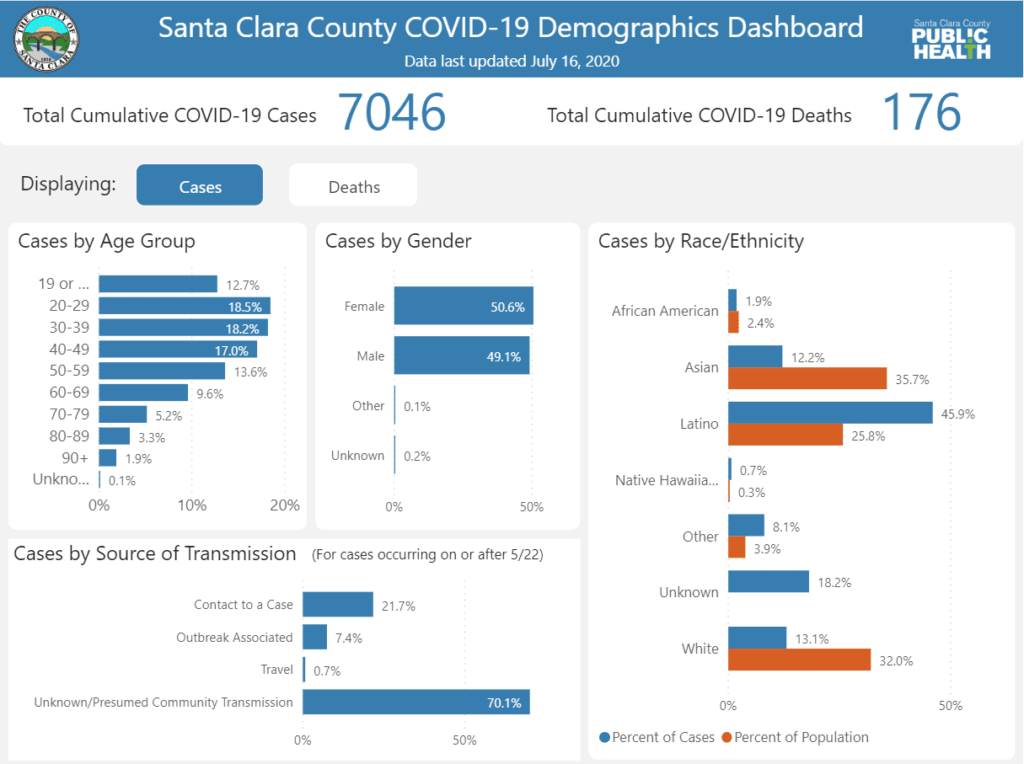WASHINGTON, D.C. — During a congressional committee hearing this week, Rep. Zoe Lofgren (D-San Jose) said the coronavirus pandemic has clearly exposed systemic racism in the United States.
“It didn’t create it, but it revealed the divisions,” she said. “We have an opportunity now to examine the broad scope of that and to come up with a path forward for change.”
The congresswoman was speaking at a virtual hearing to discuss the links between racism, environmental hazards and the coronavirus pandemic. The Committee on Science, Space and Technology heard from four witnesses, including Heather McTeer Toney and Dr. Mustafa Santiago Ali.
Toney, the national field director for Moms Clean Air Force, told the committee the coronavirus is undoubtedly ravaging communities of color. MCAF is an organization of more than one million parents devoted to fighting air pollution for their children.
“A study from Yale (University) found that Black Americans are three-and-a-half times more likely to die of coronavirus than white Americans,” she said. “…The COVID-19 disparities are stemming from multiple interrelated factors that are all driven by long-standing structural racism and inequities.”


The disparities hit close to home. In Santa Clara County, Latinos comprise nearly 46% of the cases and 31% of the COVID-19 deaths, despite making up just a quarter of the population. Black people account for 4.5% of the county’s deaths, though they make up 2.4% of the population.
Similar trends are seen across the state. Latinos account for 54.8% of the state’s cases and 44% of its deaths, while Latinos comprise 38.9% of the population.
Toney said minorities and lower-income families are more likely to be regularly exposed to air pollution, which can cause or exacerbate many of the health conditions that make the coronavirus more deadly.
Ali, the vice president of environmental justice, climate and community revitalization for the National Wildlife Federation, agreed that exposure to environmental toxins is one of the reasons more minorities are dying from COVID-19. He said estimates published on behalf of the Environmental Protection Agency’s Environmental Justice Screening and Mapping Tool show that communities with more minorities tend to face significantly higher levels of exposure to environmental hazards.
This is due in part to the long-lasting effects of segregation, he explained.
“Communities of color were historically disinvested, which made them susceptible to the placement of toxic industries that have polluted air, land and water,” Ali said. “As a result, these front-line communities suffer from chronic medical conditions — heart, liver, kidney and lung diseases — as well as cancer. Further, these chronic medical conditions make people more susceptible to the coronavirus and heat-related illnesses, including heat exhaustion and stroke.”
He added a recent study at Harvard University found that even small increases in long-term exposure to certain air pollutants are associated with an 8% increase in COVID-19 death rates.
Ali said the current administration’s approach to the environment has only worsened the situation. The Trump administration has rolled back more than 60 environmental regulations, he said, and is working to weaken the National Environmental Policy Act.
Lofgren recalled how the EPA moved last year to revoke California’s right to set its own stricter air pollution standards for vehicles. Interstate 5 runs down the state’s Central Valley, she said, which is home to the highest rates of asthma in children in the United States.
Lofgren asked Ali what impact the EPA’s action could have on the potential risk for the coronavirus in the Central Valley’s communities.
“When California was trying to strengthen their standards, what they were trying to do was to protect more people’s lives,” Ali said. “When we don’t do that, unfortunately, we are putting more people’s lives in jeopardy and also making folks more vulnerable to COVID-19.”
The committee also heard from Hilton Kelley, the director of the Community In-Power and Development Association, a nonprofit that fights for cleaner air. In terms of solutions, Kelley said it’s important to emphasize to industry owners that taking steps to help the environment, like repairing leaky pipes or replacing out-of-date equipment, can ultimately be cost-effective in many cases.
“They will find that they will save (money) and also help to keep the environment cleaner,” he said.
Contact Katie King at [email protected] or follow @KatieKingCST on Twitter.



Leave a Reply
You must be logged in to post a comment.